- News
- Reviews
- Bikes
- Accessories
- Accessories - misc
- Computer mounts
- Bags
- Bar ends
- Bike bags & cases
- Bottle cages
- Bottles
- Cameras
- Car racks
- Child seats
- Computers
- Glasses
- GPS units
- Helmets
- Lights - front
- Lights - rear
- Lights - sets
- Locks
- Mirrors
- Mudguards
- Racks
- Pumps & CO2 inflators
- Puncture kits
- Reflectives
- Smart watches
- Stands and racks
- Trailers
- Clothing
- Components
- Bar tape & grips
- Bottom brackets
- Brake & gear cables
- Brake & STI levers
- Brake pads & spares
- Brakes
- Cassettes & freewheels
- Chains
- Chainsets & chainrings
- Derailleurs - front
- Derailleurs - rear
- Forks
- Gear levers & shifters
- Groupsets
- Handlebars & extensions
- Headsets
- Hubs
- Inner tubes
- Pedals
- Quick releases & skewers
- Saddles
- Seatposts
- Stems
- Wheels
- Tyres
- Health, fitness and nutrition
- Tools and workshop
- Miscellaneous
- Tubeless valves
- Buyers Guides
- Features
- Forum
- Recommends
- Podcast
feature
 Twmpa zero carbon gravel bike
Twmpa zero carbon gravel bikeThis TWMPA 'zero carbon' gravel bike is made out of engineered ash wood
It's not totally unusual to see bikes made out of wood – and we've had a look at this TWMPA bike before – but they are rarely built in the UK and from British wood. As Black Friday and Cyber Monda sales are rampant, it's perhaps a good time to sit back with a mug of cocoa and delve into this wood-constructed bike that can remind us of the softer, more sustainable side of the industry.
The TWMPA GR 1.1 here belongs to Rory Hitchens, a brand consultant at Greenleaves Cycling. It features a frame made of engineered wood, specifically ash, and has quite a unique look because of that. Chatting to Hitchens about his bike, he highlights how one of the primary reasons to opt for wood as a frame material is the cellular structure of wood, which means it offers natural damping properties.
Unlike frame materials like carbon fibre, wood's cellular makeup allows it to absorb shocks and vibrations, making it especially good on gravel. And of course, the use of wood also adds an environmentally-friendly dimension, given its renewable and sustainable nature.
Although Hitchens' aim was to make this bike as carbon-free as possible, the frame itself does incorporate a little bit of carbon into it at the chainstays, where some extra stiffness was needed. That is where the carbon stops though, because the rest of the finishing kit is all alloy and steel (unless you count the luxurious carbon rear rack, courtesy of cycling luggage specialists Tailfin).
The frame itself is hollow and weighs around 1.7kg to 2.0kg, depending on size, and full builds tip the scales at around 9.5kg. The structural safety of a wood-engineered bike frame is perhaps one of the most common concerns, but TWMPA has tested the frames to the BS EN ISO 4210-2:2015 standard. If this means nothing to you, it essentially measures the structure for impact and fatigue, simulating 10 years of use.
"Initially you see the frame, you think that's beautiful!", says Hitchens.
"But inside is where the proper stuff is going on. You can see some of that engineering expertise through some of the laminates and also at the joints which are very clever. They are essentially a jigsaw piece joint."
Those jigsaw joints don't only puzzle you visually, but they add a lot of structural strength to the build. This is because the bonding wood glue can be applied to a larger area, and the way the two pieces slot together already forms a bond in itself.
Hitchens got his hands on this bike after the maker of it, Andy Dix, convinced him of its capabilities, and built an XL frame that would suit its rider.
The frame can accommodate up to 50mm tyres, and can be custom-built to the rider's measurements or made in standard sizes that Dix has listed on the TWMPA website.
Going for the custom-build option, Hitchens has equipped the bike with a RockShox Rudy suspension fork with 30mm of travel, and there is also a dropper seatpost for achieving better weight distribution on steep and rowdy descents.
The bling hubs, stem and cranks from Hope add a little bit of colour to contrast the ash frame, and the SRAM Force AXS XPLR groupset takes care of the shifting duties wirelessly. The wheels are from British components experts Hope, and clad in Schwalbe G-One Ultrabite gravel tyres.
To confirm if the hype is justified, we're about to take this bike on a test spin ourselves in both gravel and road configurations. Keep your eyes open for those pieces dropping here in the future!
Also, don't forget to check out our other Bike at Bedtime features…
Suvi joined F-At in 2022, first writing for off-road.cc and then road.cc and ebiketips too until August 2024. She contributed to all of the sites covering tech news, features, reviews and women's cycling content. A lover of long-distance cycling, Suvi is easily convinced to join any rides and events that cover over 100km, and ideally, plenty of cake and coffee stops.
Latest Comments
- BigDoodyBoy 7 min 35 sec ago
It's a label. To the average person in the street, if it looks like a bike and is electric, it's an e-bike. If it looks like a scooter and is...
- Mr Blackbird 3 hours 1 min ago
I suspect you are right. But no harm in hoping.
- Jack Sexty 3 hours 18 min ago
Apologies for the oversight there, it's been corrected. Obviously it should have said 97ft🤦♂️
- festival 3 hours 35 min ago
The more this Nash gezzer opens his mouth the worse he comes across. The mans passion for green issues clouds his judgement on common decency!
- a1white 5 hours 7 min ago
Simon Nash needs to just stick to making the produts and seriously step back from social media and all the marketing. He's an absolute liability to...
- Jitensha Oni 5 hours 20 min ago
Because drivers often find it hard too and nobody’s perfect (indeed a few are bad on purpose)? It’s not really fair to expect people cycling to...
- wtjs 5 hours 39 min ago
Even I would say 'report horse ramming to the police ' because just ignoring that report is viewed as less acceptable than if it was a cyclist -...
- chrisonabike 7 hours 9 min ago
I wasn't a bike geek or "serious" rider then (not now...) - my ride was a non-suspended 26" wheel "mountain bike" with V-brakes and piano key...
- mdavidford 7 hours 18 min ago
And, bonus, you can get rid of feed zones - just make them carry all their supplies in the basket.
- Condor Andy 9 hours 35 min ago
I tried to make a thread announcing a league code for Velogames, but it seems to have been banished to the aether. The code is 620099424
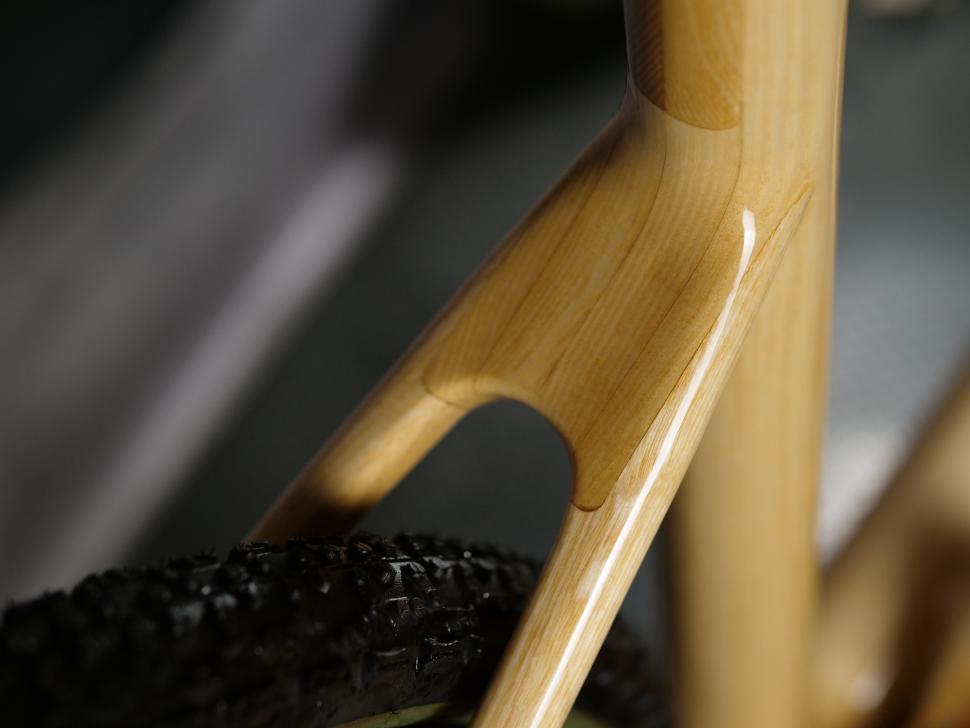
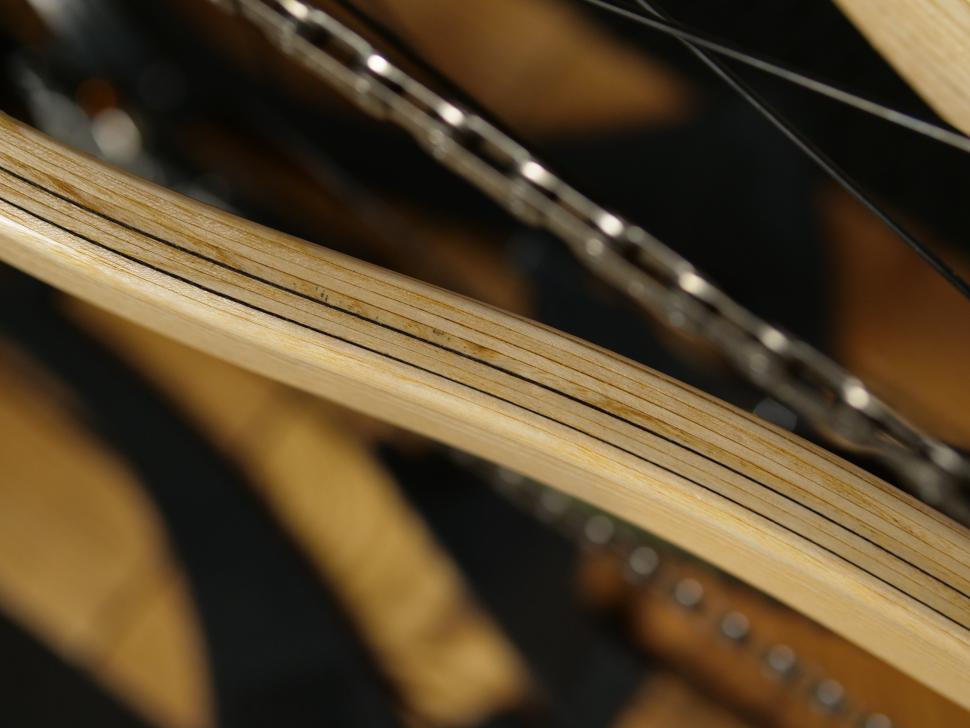
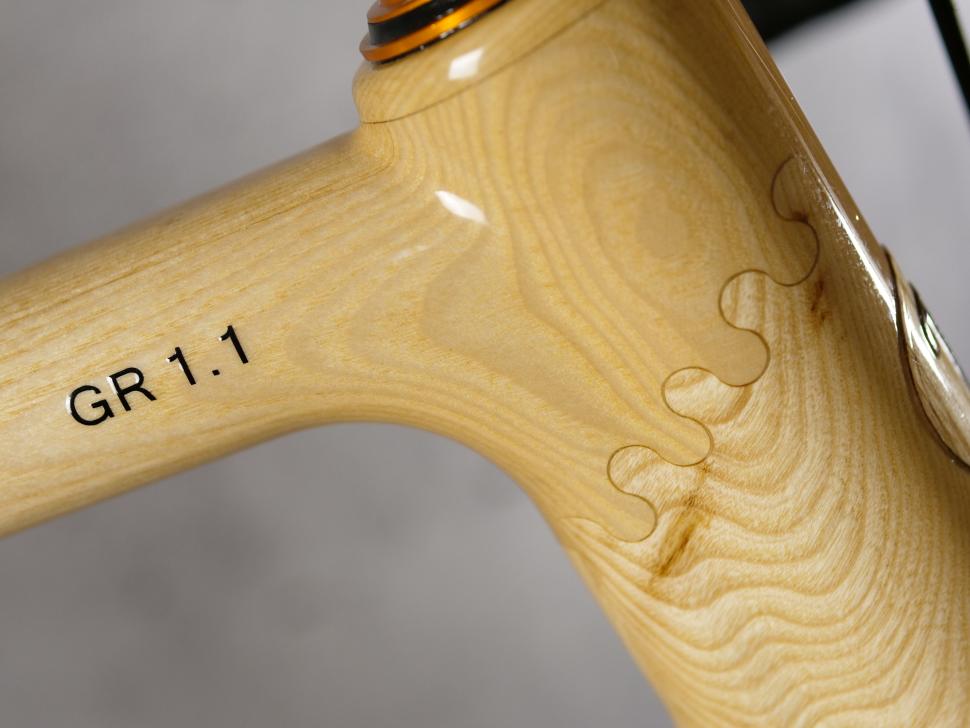
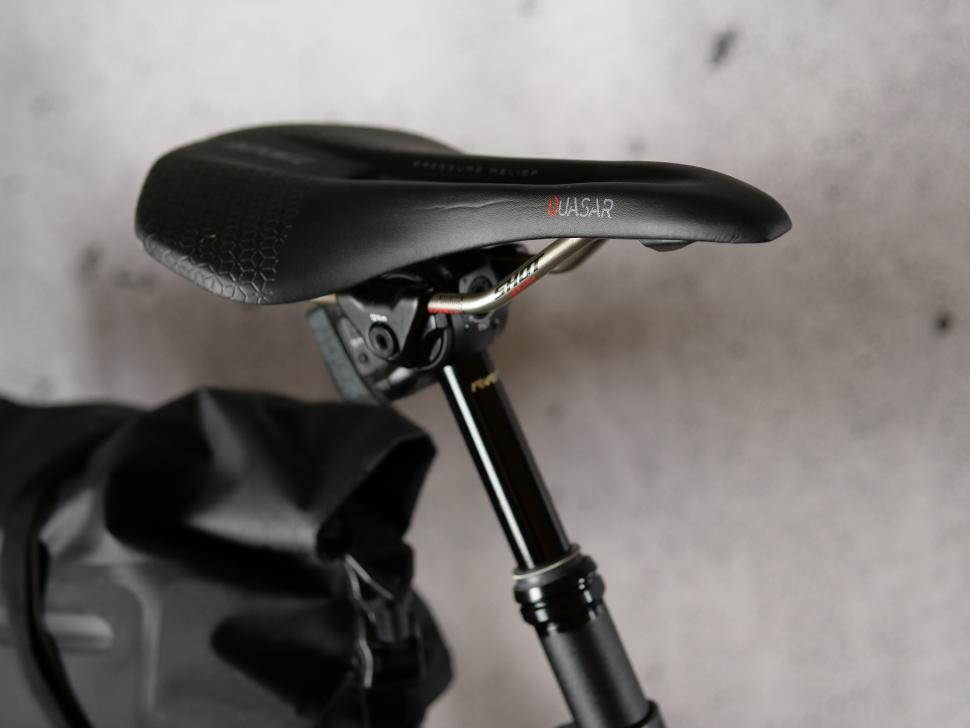
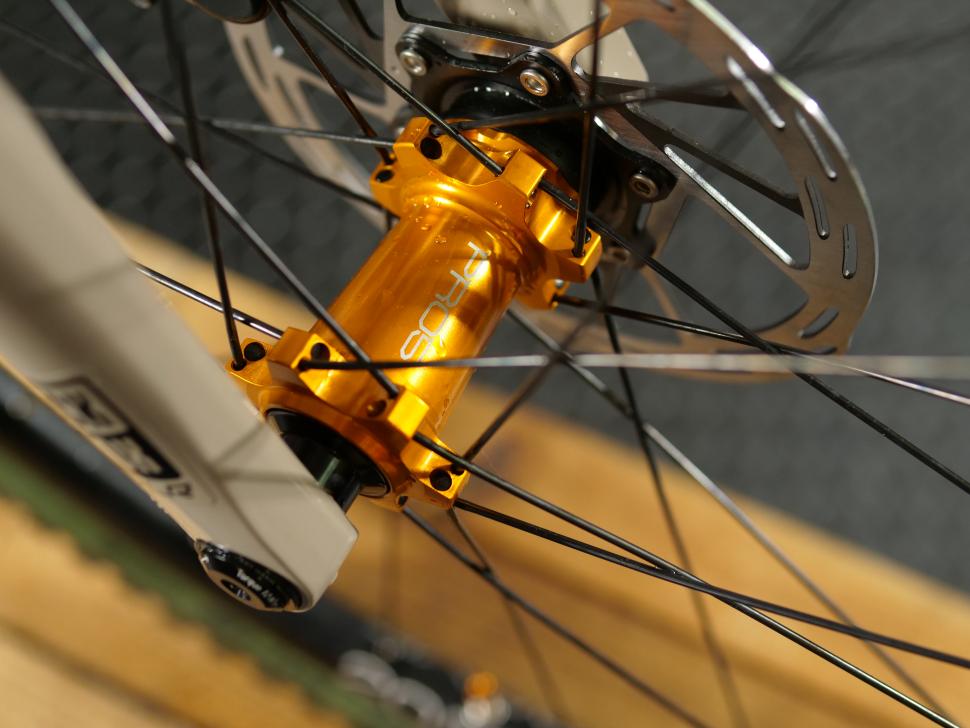
Add new comment
8 comments
The frame weight in combination with the 10 year impact resistant certification, seems very impressive to me. I would really like to know how many manhours were spent making it in comparison with a metal welded and a carbon frame.
No matter how impressive it is, I think that trying to save a couple of kilos of waste for a frame that is meant to last decades, is kind of wrong focus. I assume it would cost like 1000s of £ while if these money was spent on basic solar panels or planting trees, the carbon footprint reduction would have been much greater.
Lifcycle analysis or it didn't happen.
Did no one tell the chap that wood itself is around 50% carbon?
It seems "carbon" as a shorthand for carbon dioxide is being confused with the element itself.
Now we just need to wait for a carbon free organism to evolve so it can be ridden.
I'm not sure carbon fibre is great from am environmental point of view tbf - I think the phrase is 'forever chemicals'.
It's a bit of a shame this carbon free bike contains some carbon however...
The carbon fibre itself isn't really an issue. It's... one of the most essential elements for all life on this planet. Grind it up into a fine dust and bury it.
The problem is the resin.
And note, wooden bikes will also be epoxied together. Laminates will have a lot of epoxy.
Replacing the carbon fibre with wood doesn't solve the epoxy problem.
Metal frames are much more environmentally friendly, from the POV of ecological breakdown. Steel frames will relatively quickly be reintegrated into the earth by chemical and biological means if buried in dampish conditions. Aluminium will break down too eventually (more slowly, and Al is not that essential an element for life - unlike iron, which I guess is related to slow breakdown).
The energy for manufacture, well, we need green energy one way or another.